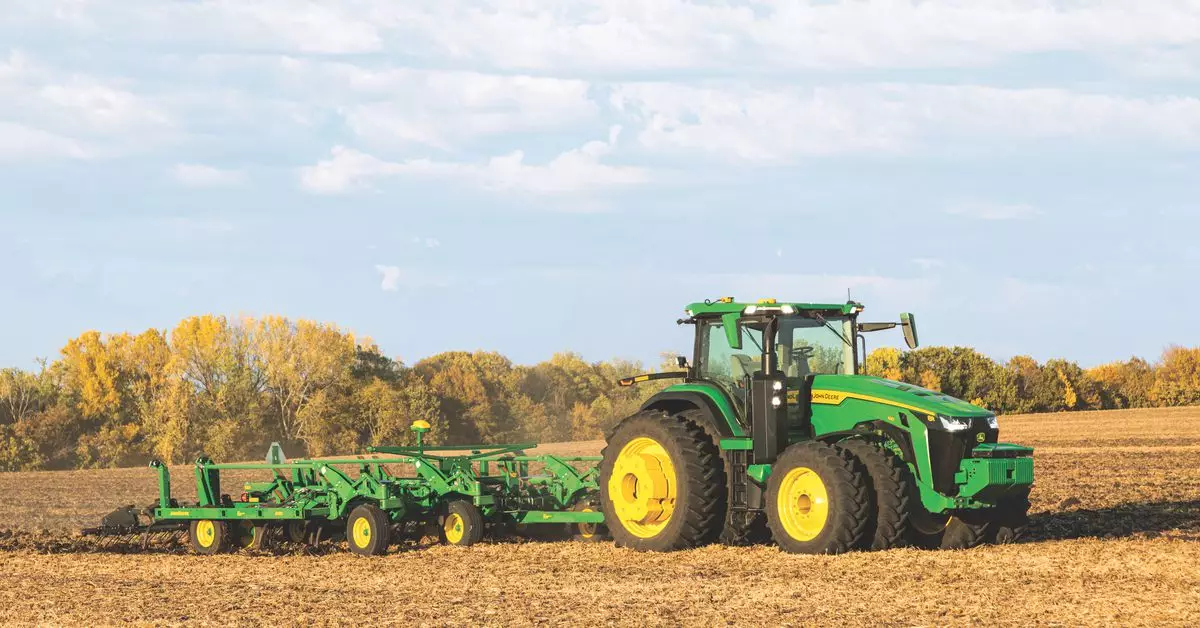Solar storms have been captivating people with the mesmerizing Northern Lights across the United States for the past two nights. However, these solar storms have also been causing disruptions in GPS satellites, leading to significant challenges for Midwest farmers in their planting operations.
The solar storms have caused some GPS systems to go offline temporarily, affecting the accuracy of Real-Time Kinematic (RTK) systems that are crucial for farming work such as crop-planting and fertilizing. Tractors from renowned brands like John Deere rely on RTK for centimeter-level positional accuracy. The compromised GPS systems have resulted in drastic shifts in the fields and heading changes for farmers who continued planting during the outages.
Midwest farmers, particularly corn farmers, are facing critical challenges due to the disrupted GPS systems caused by the solar storms. With a crucial planting deadline rapidly approaching, these farmers risk missing the window to plant their corn crops effectively. Will Cade from Repair.org highlighted the significance of the May 15th deadline for corn planting, emphasizing the immense impact if crops cannot be planted by then.
The Role of RTK Systems in Planting Operations
Farmers like Tom Schwarz, who rely on RTK systems to precisely plant crops up to the edges of lanes, are facing uncertainties due to the inaccurate GPS data during planting. The reliance on high-tech, automated tractors and equipment in modern farming practices exacerbates the challenges faced by farmers when such systems fail. The inability to accurately plant crops can lead to severe consequences later in the season, complicating the process of tending to the fields.
The reliance on technology in modern farming practices underscores the importance of right-to-repair laws that empower farmers to fix their equipment independently. When faced with disruptions in essential systems like GPS, farmers need the flexibility to address technical issues promptly without being dependent on manufacturers for assistance. The momentum behind right-to-repair laws reflects the growing need for farmers to have more control over the maintenance of their equipment.
Geomagnetic storms, such as the ones caused by solar activities like coronal mass ejections, can have severe ramifications on communication and navigation systems on Earth. The recent G5-level solar storm has highlighted the vulnerability of GPS satellites and other technology-driven systems to such natural phenomena. The potential for future severe storms underscores the importance of implementing robust contingency measures to mitigate the impact on critical infrastructure.
The disruption of GPS systems by solar storms has significant implications for Midwest farmers, particularly corn farmers relying on precise planting operations. The challenges posed by the compromised GPS systems underscore the need for greater resilience in modern farming practices and the implementation of right-to-repair laws to empower farmers to address technical issues effectively. As solar activities continue to impact Earth’s technology-dependent systems, proactive measures must be taken to safeguard agricultural operations and critical infrastructure from the effects of geomagnetic storms.


Leave a Reply
You must be logged in to post a comment.